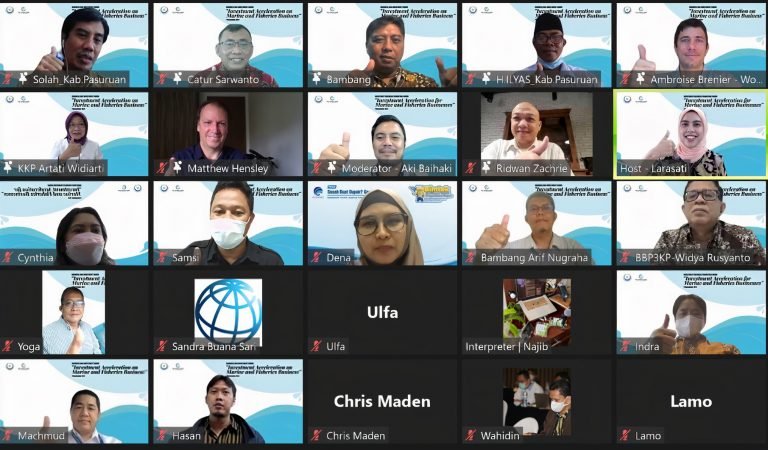Indonesia’s Economic Growth in 2025 stands as a beacon of optimism in global economic forecasts. The nation’s Gross Domestic Product (GDP) has already surpassed USD 1.4 trillion, equivalent to IDR 22,729 trillion at an exchange rate of IDR 16,235.
The World Bank predicts steady GDP growth, underscoring Indonesia’s resilience and strategic economic policies. As Southeast Asia’s largest economy, Indonesia remains a vital player in the region’s recovery and long-term development. This projection reflects the country’s ongoing efforts to bolster infrastructure, attract investment, and drive innovation in emerging sectors.
Strong Forecast for Indonesia Economic Growth 2025
The World Bank projects Indonesia’s economic growth at 5.1% in 2025. “Positive risk potential includes a stronger-than-expected recovery among key trading partners and rising prices of major commodities,” stated the World Bank in its report. This projection reflects optimism around Indonesia’s ability to adapt to global economic dynamics and leverage key opportunities for growth.
The Indonesian government has set its own target for 2025, projecting economic growth at 5.2%, as outlined in the 2025 State Budget Law. This mirrors the 2024 target, also set at 5.2%. However, data from the Central Statistics Agency shows cumulative growth from January to September 2024 at 5.03%. Deputy Minister of Finance Thomas Djiwandono noted that achieving next year’s target will depend significantly on the policies implemented by President Prabowo Subianto and Vice President Gibran Rakabuming.
IMF, UN, and OECD Views on Indonesia’s Growth
Global institutions provide varied yet optimistic perspectives on Indonesia’s growth in 2025:
- IMF (International Monetary Fund): The IMF highlights Indonesia’s GDP growth at 5% in 2024, with inflation at a stable 2.5%. It commends the country’s poverty reduction efforts, which have decreased to less than 2%, and notes Jakarta’s income levels rival those of some European nations.
- UNCTAD (United Nations Conference on Trade and Development) : UNCTAD underscores the importance of rising fiscal spending on infrastructure and social assistance in supporting growth. It also notes the boost from increased tourist arrivals, particularly from Asia, and higher export volumes of base metals, such as nickel.
- OECD (Organization for Economic Co-operation and Development): The OECD emphasizes the need for increased state revenues to address long-term challenges, such as climate change and an aging population, while maintaining robust growth.
These insights reflect a shared optimism among international organizations about Indonesia’s potential as a regional leader in economic development.
Why Indonesia’s GDP Could Excel in 2025
Several key factors position Indonesia for strong GDP growth in 2025. Increased government spending on infrastructure, such as toll roads and renewable energy projects, supports long-term economic stability. The rise in tourist arrivals, particularly from Asia, boosts service exports and strengthens Indonesia’s external balances.
Additionally, growing exports of base metals like nickel further enhance trade performance. These developments, coupled with policy reforms aimed at attracting foreign investment and fostering digital innovation, highlight Indonesia’s potential to excel in the coming years.
Southeast Asia Growth Trends and Indonesia’s Position
The combined economies of the top six nations in Southeast Asia (SEA-6) are expected to grow by an average of 5.1% annually. Vietnam and the Philippines lead the region, each projected to exceed 6% growth, while Indonesia follows closely with a forecast of 5.7%. Notably, for the first time in a decade, the SEA-6 region has outpaced China in attracting foreign direct investments (FDIs), showcasing its growing appeal as a global economic hub.
Future Outlook: Sustaining Indonesia Economic Growth 2025
Indonesia’s economic growth prospects for 2025 reflect both promise and potential challenges. With strong support from infrastructure development, rising exports, and strategic policy reforms, the country is well-positioned to sustain its upward trajectory. Optimistic projections from institutions like the World Bank, IMF, and OECD highlight Indonesia’s resilience and growing global role.
However, achieving these targets will require careful implementation of fiscal policies and continued focus on innovation. As Southeast Asia’s largest economy, Indonesia is set to lead the region while addressing global challenges such as climate change and demographic shifts. The nation’s efforts today will define its role as a key player in the global economy tomorrow.
Have questions about starting a business or investing in Indonesia? Seven Stones Indonesia is here to help. We specialize in company incorporation, licensing, and essential business services to support your success.
Whether you need guidance on tax regulations, HR solutions, or market entry strategies, our experienced team is ready to assist. Contact us today to discuss your plans and take the first step toward unlocking Indonesia’s vast potential for growth.
Source: ekonomi.bisnis.com, finance.detik.com, dbs.com
Image: Investopedia (Getty Images)

















